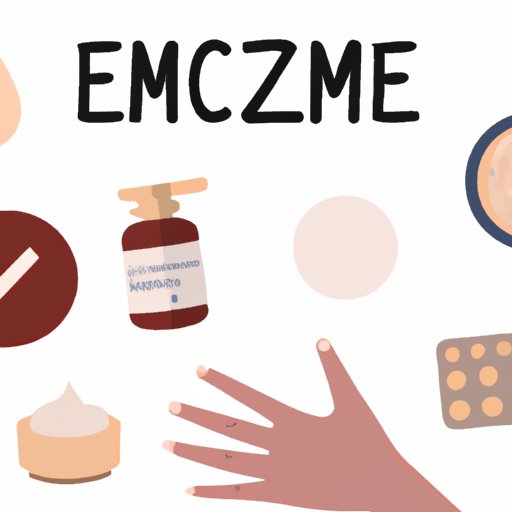
Treat Eczema: Solutions for Managing and Preventing Flare-Ups
Eczema, also known as atopic dermatitis, is a common skin condition that affects millions of people worldwide. It is characterized by red, itchy, inflamed patches of skin that can vary in severity. If you or someone you know suffers from eczema, you know how frustrating and uncomfortable the symptoms can be. Fortunately, there are several ways to manage and prevent flare-ups of eczema. In this article, we’ll discuss various solutions for treating this condition and help you regain control of your skin.
Symptoms and Triggers of Eczema
The symptoms of eczema can vary in intensity and severity. They often include dry, itchy skin, redness, inflammation, and flaky or scaly patches. These symptoms can occur anywhere on the body, but they most commonly appear on the face, neck, hands, and feet.
Eczema flare-ups can be triggered by several factors, including stress, temperature, environment, and allergies. Identifying and avoiding triggers can help reduce the risk of flare-ups. It is recommended to consult with a dermatologist or healthcare professional to determine the specific triggers that affect you.
Medications for Eczema Treatment
There are various medications that can help manage eczema symptoms. Healthcare professionals may prescribe topical creams, oral medications, or injectable biologic agents to provide relief. Topical creams work to reduce inflammation and itching, while oral or injectable medications work to treat underlying immune system issues. Each type of medication has benefits and risks associated with them, so it’s important to discuss with your healthcare provider which treatment options are the best fit for you.
Natural and At-Home Remedies
While prescribed medication is often necessary for treating eczema, there are also natural and at-home remedies that can help manage symptoms. For example, oatmeal baths can provide relief by soothing the skin. Wet dressings, placed on the affected areas, can also work wonders in reducing itching and inflammation. Additionally, coconut oil can be used to moisturize dry, irritated skin and reduce inflammation. It’s important to note that natural remedies should always be used in conjunction with prescribed medications and not as a sole treatment.
Another way to reduce eczema symptoms is by reducing stress levels. Yoga, meditation, and relaxation exercises can help reduce stress and prevent flare-ups.
Skincare Routine for Managing Eczema
Proper skincare is critical to managing and preventing eczema flare-ups. Stick to gentle, fragrance-free skincare products that are appropriate for eczema-prone skin. It’s best to avoid using soap and substitute it with soap-free cleansers that can nurture and protect the skin. Also, try to avoid harsh skin scrubbers or cleansing cloths that can lead to irritation.
Diet and Eczema
While there are no proven food cures for eczema, some foods can worsen symptoms. Various studies show that eliminating dairy, gluten, and processed foods from your diet can reduce inflammation and help prevent flare-ups. It is recommended to consult with a dietician or allergy specialist to understand how certain foods may affect you.
Preventing Flare-ups of Eczema
Although eczema flare-ups can be challenging to predict, there are actions you can take to reduce the risk of them occurring. During seasonal changes, adjust clothing options to prevent overheating or sweating. Also, use a humidifier during the winter months to prevent the skin from becoming overly dry. By following these tips, you can help prevent flare-ups.
Support Resources for Eczema Sufferers
Living with eczema can take a toll on anyone. It may be helpful to reach out to support groups, online forums, or local organizations that offer educational classes. These resources can provide a wealth of knowledge, tips, and emotional support for those dealing with eczema.
Conclusion
Eczema is a skin condition that can cause discomfort, frustration, and embarrassment. However, by implementing the treatments and strategies mentioned in this article, you can manage eczema symptoms and prevent flare-ups. Remember always to consult a healthcare professional and use a multidisciplinary approach in treating eczema. While the journey to healing may be challenging, know that you are not alone and that better skin is possible.





